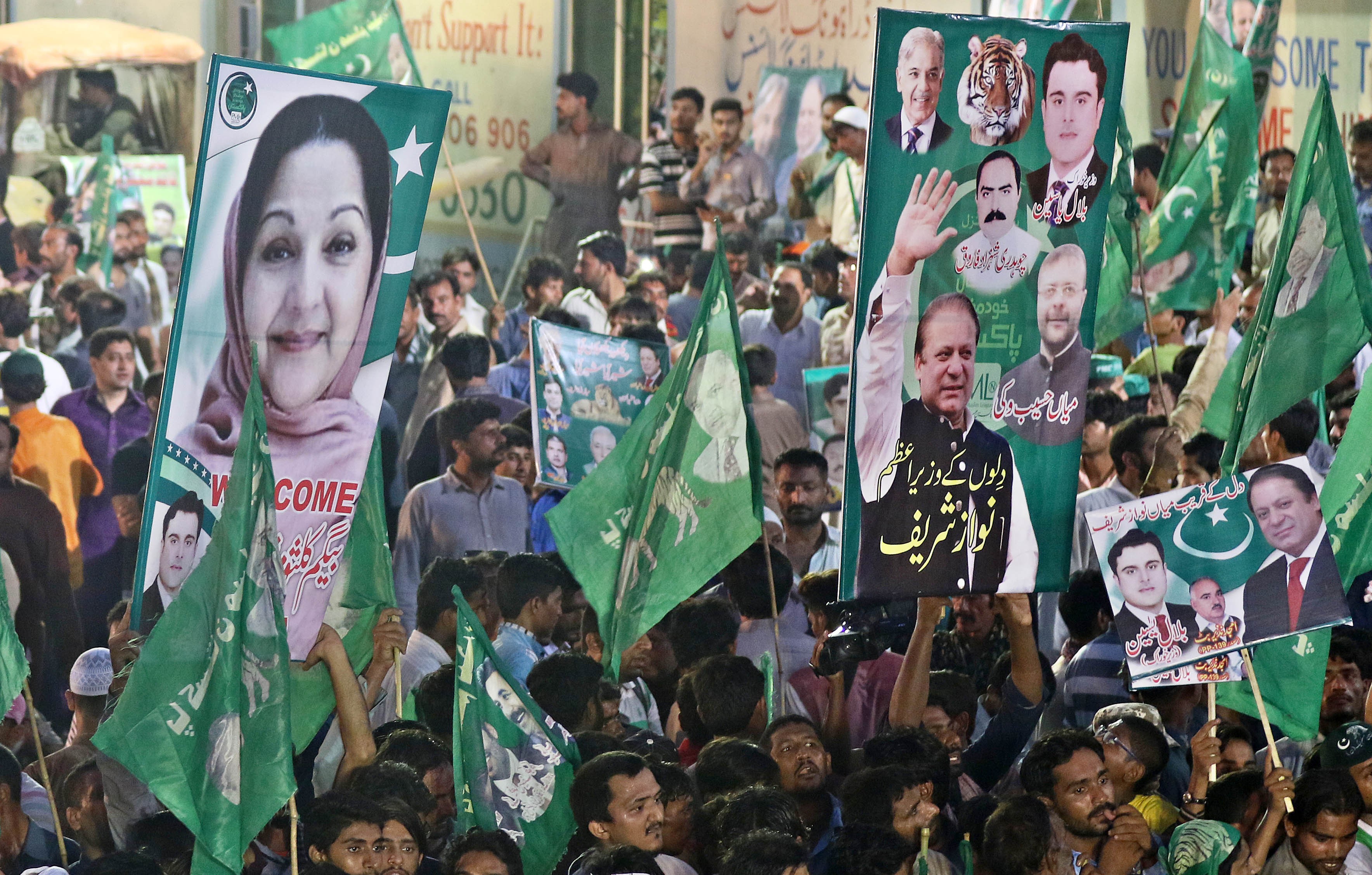
The post-Sharif political landscape is muddled as the former First Family is sucked into a long drawn-out legal battle

Confusion continues to follow the ouster of former premier Mian Nawaz Sharif. In this politically uncertain environment, even political players who were active in the run-up to the decision against the Sharifs have simply detached themselves.
The PML-N’s bitter rival, the Pakistan Tehreek-e-Insaf (PTI) has been keeping a low profile, perhaps following the party chairman’s "wait and watch policy". But, underlying this stance is the question of possible disqualification of Imran Khan -- an issue which might also be decided next month by the apex court.
In order to build a momentum post-Nawaz’s ouster, the Pakistan People’s Party (PPP) pulled substantial crowds to regain the party’s lost glory. PPP chairman Bilawal Zardari has attempted to reinvigorate the PPP workers who had lost all hopes of forming a government at the centre.
Senior journalist Mohammad Ziauddin sees confusion getting further confounded. "The PML-Nawaz is fighting for its life. The PPP is too weak in Punjab to make any significant gain in the next election. The PTI has also an uphill task in Punjab while it does not have a foothold in Sindh and Balochistan. Army seems to be firmly back in the saddle but will need to be highly innovative to continue to remain unchallenged. I am not sure if it has the brains to come up with a universally acceptable and effective political answer to the challenges facing the country," is how he sums up the current political situation.
Analysts like Kamran Rehmat also foresee a return to coalition governments in the country following the polarised politics post-2018 general elections. Rehmat bases his judgment on the possibility of desertions within the ruling party. "We may be bracing for coalition politics in the wake of the 2018 elections. But if Nawaz Sharif reconciles with an elder statesman’s role and, in effect, lets the younger brother helm the ship -- and that’s a big IF -- the PML-N could still remain significantly powerful."
Other important questions about the PML-N’s fate revolve around the role of ex-Premier Nawaz Sharif’s daughter Maryam Nawaz Sharif in the upcoming politics, especially after her mother, Kalsoom Nawaz, who was contesting for the NA-120 seat was diagnosed with cancer. Maryam’s possible involvement in future politics of the PML-N and the role of her uncle Chief Minister Punjab Shahbaz Sharif to run the party affairs remain key questions of interest.
Taking in the bigger picture, the role of the military establishment also looms large especially after US President Donald Trump announced his policy on South Asia -- India, Pakistan and Afghanistan in particular.
Rehmat is skeptical of how much gravitas the elder Sharif and daughter Maryam would hold in the changed scenario. "The third aborted term of the former prime minister is being viewed as a ‘judicial’ coup at the behest of the usual suspects by some pundits. If history is any guide, such reversals are never a harbinger of the same party returning to power in an election closest to the exit. With Shahbaz Sharif’s expected ascension to the party leadership, hawks and doves will be forced to pick sides between the Sharif brothers, who are already poles apart in their political approach to outer limits," Rehmat reckons.
Though he believes that the PML-N is apparently well ensconced in the Centre and Punjab even minus Nawaz Sharif, he reiterates that the party unity would be tested in the weeks and months ahead as the former First Family is sucked into a long drawn-out legal battle.
Editor BBC Urdu Islamabad, Haroon Rashid, says all political stakeholders have secret moves up their sleeves to change the course. "For Nawaz Sharif the biggest challenge would be keeping his support intact now that he has decided not to go for early elections. This is further compounded by the fact that he is targeting the powerful establishment," he says.
Like Rehmat, Rashid points out that in Pakistan, no party in power has been able to get a second term. "Things will also be tough for Nawaz Sharif because of the incumbency factor. We will have to wait and see what cards the Sharifs play and where the NAB investigations take them."
For analyst Harris Khalique, Nawaz Sharif is a victim of the aversion that Pakistani affluent middle class has for democracy. "They favour the appointed versus the elected. I wish public office holders were truly debarred for corruption. That is not the case as yet or else half of PTI and PPP will be sent packing too," he remarks.
In Khalique’s view, Nawaz Sharif and daughter Maryam Nawaz can only have a future if the parliament amends the constitution and other mainstream parties allow that to happen in the public discourse. "The PML-N can still win the 2018 elections but with a thinner majority; the PPP is also making gains at the moment," he says.
For some analysts, Pakistan’s long-term need and demand for accountability has been met: Institutions are being strengthened -- where judicial independence and accountability mechanisms have created enough equity in the political system to drive the country towards prosperity. Although the verdict against Nawaz Sharif and his family has been seen as judicial independence; accountability has to be transparent, not just against an individual or a family and instead across the board.
These analysts also comment on clouds of conflict wandering in the Middle East and President Trump’s new policy which according to them is impacting Islamabad more; and Pakistan needs to prepare for spillover effects of the Saudi-Qatar-Iran divergence.